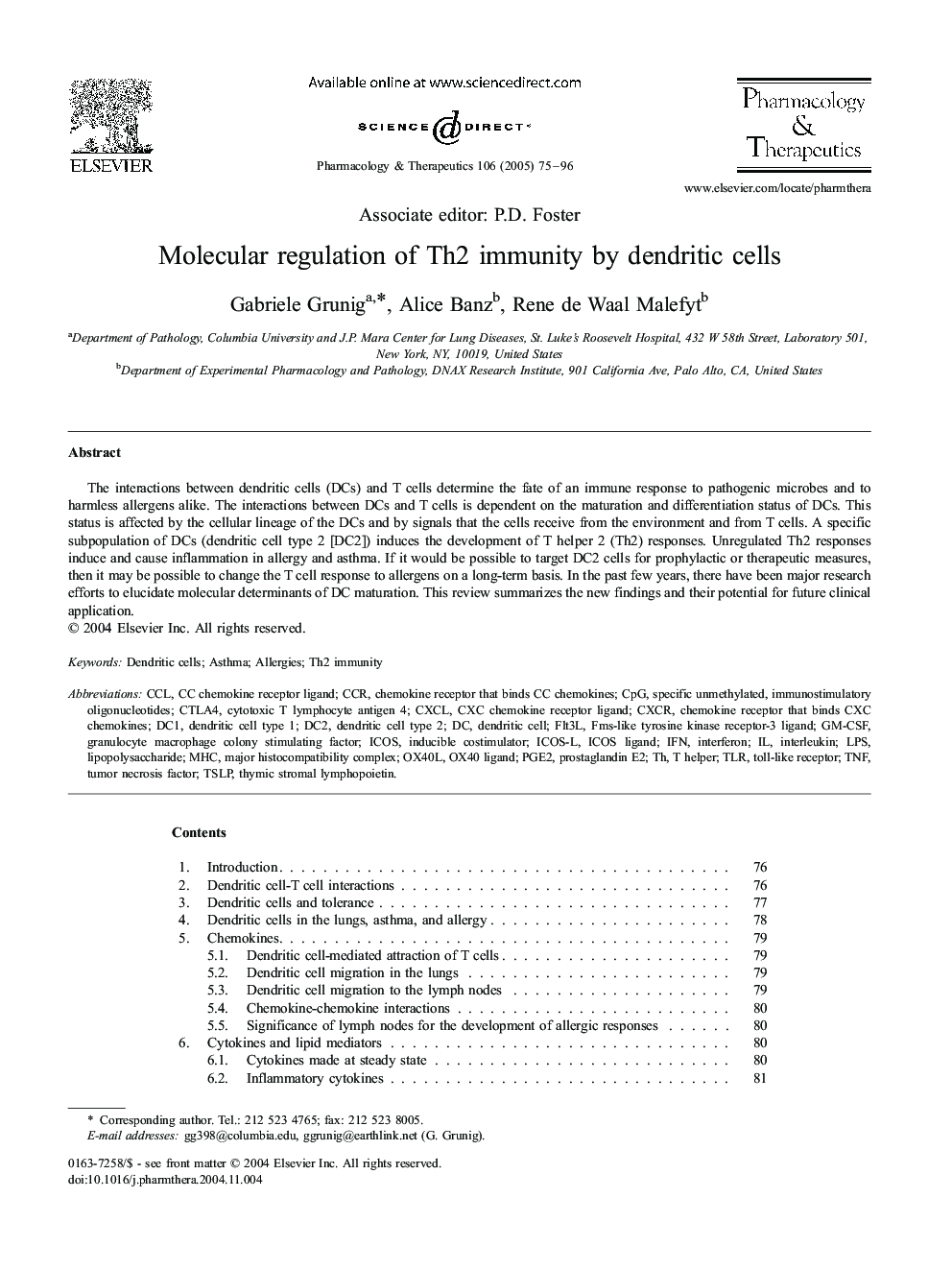| Article ID | Journal | Published Year | Pages | File Type |
|---|---|---|---|---|
| 9016144 | Pharmacology & Therapeutics | 2005 | 22 Pages |
Abstract
The interactions between dendritic cells (DCs) and T cells determine the fate of an immune response to pathogenic microbes and to harmless allergens alike. The interactions between DCs and T cells is dependent on the maturation and differentiation status of DCs. This status is affected by the cellular lineage of the DCs and by signals that the cells receive from the environment and from T cells. A specific subpopulation of DCs (dendritic cell type 2 [DC2]) induces the development of T helper 2 (Th2) responses. Unregulated Th2 responses induce and cause inflammation in allergy and asthma. If it would be possible to target DC2 cells for prophylactic or therapeutic measures, then it may be possible to change the T cell response to allergens on a long-term basis. In the past few years, there have been major research efforts to elucidate molecular determinants of DC maturation. This review summarizes the new findings and their potential for future clinical application.
Keywords
GM-CSFTNFDC2OX40LTH2 immunityICOSFlt3LTSLPCXCRT helperCTLA4CXCLCCLTLRCpGLPSCCRDC1PGE2AsthmaAllergiescytotoxic T lymphocyte antigen 4interferonIFNinterleukinToll-like receptorDendritic cellDendritic cellsGranulocyte macrophage colony stimulating factortumor necrosis factorThymic stromal lymphopoietinlipopolysaccharideOX40 ligandmajor histocompatibility complexMHCProstaglandin E2Inducible costimulator
Related Topics
Health Sciences
Pharmacology, Toxicology and Pharmaceutical Science
Pharmacology
Authors
Gabriele Grunig, Alice Banz, Rene de Waal Malefyt,
